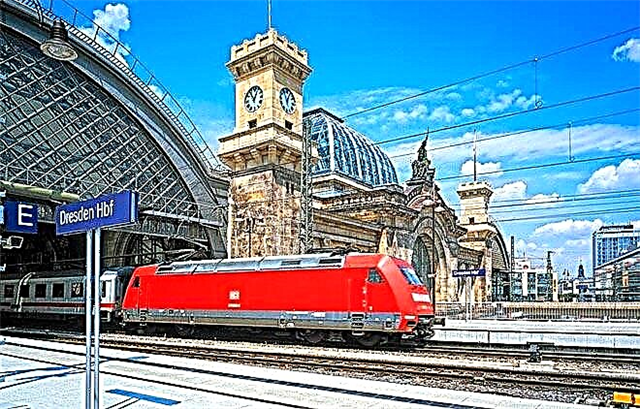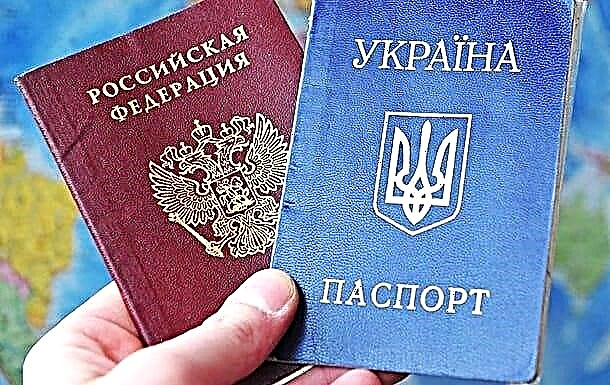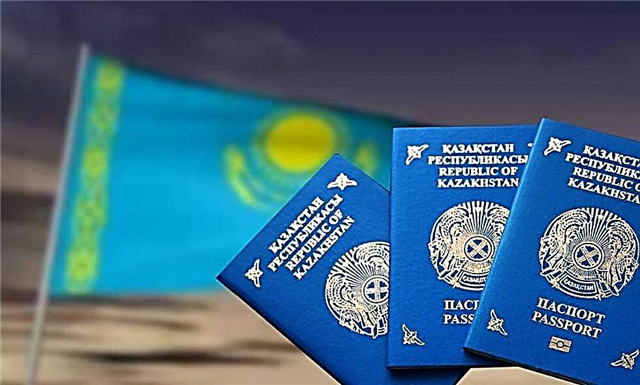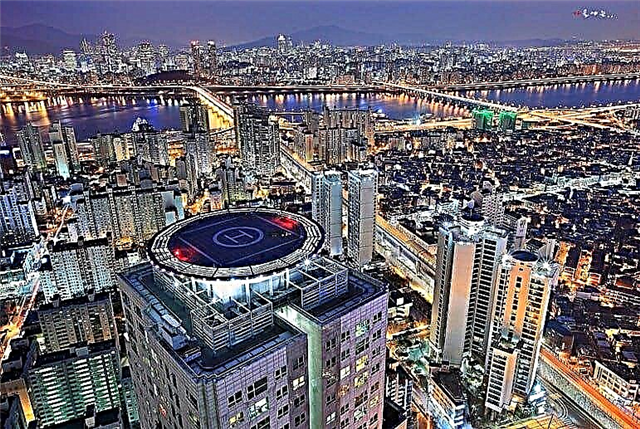Russians and citizens of other CIS countries are allowed to live in South Korea for two months without a visa. And those who belong to the category of ethnic Koreans can live here much longer, but for this they will need an F4 visa to Korea. If desired, even those who do not have Korean roots can obtain such permission.
What is F4 visa
The F4 subcategory was created to expedite the process of entry to South Korea for ethnic Koreans. This permit is issued for 2 years. All this time, its owner can live on the peninsula without leaving anywhere.

Such a visa can be obtained not only by indigenous Koreans, but also by citizens with a Korean education or a demanded specialty.
Permission for ethnic Koreans
The law applies to citizens of the Russian Federation and other CIS countries who are ethnic Koreans or their descendants up to the third generation.
F4 visa applications can be submitted by:
- Persons born before August 15, 1945 (the date of the separation of the Korean Peninsula into the southern and northern parts);
- Children and grandchildren of the aforementioned persons (second and third degrees of kinship);
- Koreans who have moved to another country and now intend to return for a while.
There are no quotas or age limits for issuing permits for these categories of applicants.
Permission for other categories
Citizens with no historical background to Korea can also apply for this category of visa.
To do this, they must meet one of the requirements below:
- Get secondary or higher education at one of the institutions in South Korea. After graduating from a university / college, it is necessary to gain experience in the specialty for at least 6 months;
- Work legally in the UK for at least two years;
- Have a narrow specialization or profession that is in great demand in the Korean labor market.
You May Also Like
In addition, all applicants must meet another requirement - to have a past without violating the visa and immigration regime in any country.

Benefits of F4 Resolution
This category gives the owner a lot of advantages. For example, he can:
- Continuously stay within the Republic for up to two years with the subsequent extension of the visa;
- After 5 years of living on an F4 visa, apply for Korean citizenship;
- Open a F19 visitor visa for husband / wife and minor children (valid for 90 days with the possibility of extension, if the resident of Korea has legalized his location there);
- Get a job in any of the areas: agriculture and animal husbandry, seafood, high-tech industry.
With such a permit, there is a chance to get a prestigious position in a large company, while for other categories of visas such an opportunity is rare. In addition, Korean employers have more confidence in F4 visa holders than H2 foreigners.
The difference between F4 and H2
The H2 subspecies resolution also applies to ethnic Koreans, but has several disadvantages:
- With visa H2 it is forbidden to engage in business or get a job in offices. The F4 visa supports such activities;
- F4 prohibits exclusively manual labor. H2 assumes only such work.
But there are also advantages. If the F4 visa is designed only for Koreans up to 3 generations, then the H2 subtype can be applied for by citizens who at least a quarter belong to the history of the country. The rule applies to persons over 25 years of age.
Where can I get an F4 visa
There are no visa centers in Russia that would work only in South Korea, so there are two ways to submit documents:
- At the Korean Embassy in Moscow;
- To the Consulate General of the South Caucasus in Vladivostok, Irkutsk, St. Petersburg.
You can find out the addresses and phone numbers of Korean representations in Russia on the official website of the Embassy. It also describes which department this or that region belongs to.
You May Also Like
Visa documents can be brought in person by signing up for an interview, or sent through a courier service. Consulates do not accept packages of papers by mail.
| Town | The address | Phone and fax | Working hours |
| Moscow | 119121, Moscow, st. Plyushchikha, 56 | Phone: (495) 783 27 27, phone of the consular department - extension 103 (495) 783 27 17 Fax: (495) 783 27 97, (495) 78327 27 | Reception of documents: Mon-Fri, 9.00 - 12.00 Issuance of finished documents: Mon-Fri, 17.00 - 18.00. |
| Saint Petersburg | 190000, St. Petersburg, st. Nekrasov, 32-a | (812) 448 19 09 | Reception of documents: Mon - Fri, 10.00 - 12.00 Delivery: Mon-Fri, 17.00 - 17.30. |
| Irkutsk | 664000, Irkutsk, Gagarin boulevard, 44, gost. "Irkutsk" | (3952) 24 13 19 | Mon-Fri, 9.00-17.00 |
| Vladivostok | 190091, Vladivostok, Pologaya street, 19 | Phone: (4232) 40 27 79 Fax: (4232) 22 94 71 | Mon-Fri, 9.00-18.00 |
F4 category registration procedure
The F4 visa is issued according to the standard scenario, as for other types of visas:
- Collecting documents, filling out a questionnaire;
- Registration for submission of documents. You can sign up by phone, all of them are presented on the website of the Embassy: overseas.mofa.go.kr/ru-ru/index.do;
- Sending a package of papers by courier service or in person at a Korean representative office;
- Obtaining a passport with a ready-made visa.
Documents for a visa
An applicant for an F4 category visa needs to prepare:
- An international passport that is valid for at least six months from the date of your planned entry into Korea. The original must be provided with copies of the page with personal data and closed visas to Schengen countries, Canada, Australia, USA (if any);
- Application form completed in English and signed personally by the applicant;
- Civil passport, supplemented with copies of pages with stamps;
- A certificate from a medical institution confirming that the applicant is not sick with tuberculosis;
- Photos according to ICAO standard., Two pieces. Requirements: light background, color image, size 35x45 mm, the applicant's face is 70-80% frame. Distance from chin to hairline - 32-34 mm;
- A contract with an employer, confirmation of qualifications or narrow specialization (for those who are going to work);
- Proof of ethnicity to the Republic (for native Koreans).
Documents confirming the historical roots of the Korean include:
- First generation: birth certificate;
- Second knee: birth document + paper on birth / death of parents (native Koreans);
- Third knee: documents on the birth and death of grandparents + birth certificate of a parent whose father and mother were Korean + own birth certificate.
If someone from the chain of relatives has changed their last name (parents, grandmother / grandfather, the applicant himself), you must attach a document confirming this. Proof can be a certificate from the registry office or a certificate of marriage.
Filling out the questionnaire
The visa application form can be downloaded here. When filling out an application, you must adhere to the following rules:
- You can fill out the questionnaire electronically in Word format, then print and sign;
- Filling by hand in block letters and legible handwriting is acceptable;
- Before sending the package of documents to the questionnaire, you need to glue one of the photos in the window provided for this. The consulate does not accept applications without a photo or with a black and white image;
- As contact information, you need to indicate the phone number of the foreigner himself, as well as the contacts of the citizen in his home country, to which you can contact in case of force majeure. These can be parents, sister / brother, adult children;
- A separate questionnaire is filled out for each child. In the child's application, in the column "detailed information about the inviting person", you must indicate the details of the parent who is traveling with the child.

Important! If the application form is incomplete or contains conflicting information, the representative of the Consulate has the right to refuse to open a visa.
Biometrics
From January 2012, all travelers entering South Korea must undergo a fingerprinting procedure. It does not occur when applying for a visa, as in other states, but when crossing the border.
The applicant's index fingers are taken and a digital photograph is taken. If a person refuses to undergo this procedure, he will be denied entry into the territory of the Republic.
The following are exempted from taking biometrics:
- Persons under 17;
- Foreigners who are physically unable to provide their prints due to illness or injury;
- Officials related to the authorities of any state;
- Delegates to official international organizations.
Important! Also, persons who receive an F4 visa as a substitute for an H2 visa may not undergo the procedure.
Permit processing time
Representatives of the Consulate consider an application for a long-term visa within a month. In the process of making a decision, additional questions may arise for a foreigner. In this case, the consul will inform the applicant about this and set the exact date of the interview.
How to get a passport with a visa
Before collecting documents, you need to clarify at what time the Consulate General works on issuing passports. As a rule, this happens on weekdays at certain hours. The exact information on the visa issuance regime can be found on the website of the Embassy.
For a ready-made passport, you can personally come to the Consulate where the submission took place, or order a courier delivery. In order not to arrive in vain, it is recommended to check the readiness of the visa in advance on the website overseas.mofa.go.kr/ru-ko/index.do.
When the application receives the Approved status, the passport can be collected.
Visa cost
To open a permit of type F, the applicant will have to pay 120 dollars... The state duty is paid in cash in dollars. If the applicant submits the documents in person, he pays the money to the cashier of the Consulate, if he sends the package through a courier, he pays the fee at the office of the courier service. Delivery services are paid additionally.
If you apply for a visa through a travel agency, its cost will be much higher. Companies add their commission, which can be several thousand rubles.
Reasons for refusal and what to do
In some cases, a foreigner may be denied a visa. This may be due to:
 Submission of an incomplete set of papers;
Submission of an incomplete set of papers;- Attempting to obtain a visa by fraudulent means (for example, forging documents of relationship with an ethnic Korean);
- Errors when filling out the questionnaire;
- Non-compliance with the visa regime in the past;
- Inconsistency of the applicant with the chosen type of visa.
If it is possible to correct the documents or correct the application form, the applicant is allowed to do this and re-apply after a few months. But in this case, the consular fee will have to be paid again.
If the decision is negative, a stamp is put in the passport confirming this. It will indicate the reason on which the applicant was denied a visa. This decision cannot be appealed.
How to reduce the likelihood of rejection
To minimize the risk of refusal, you need to carefully consider the selection of documents:
- All papers should be provided to confirm kinship with an ethnic Korean, especially if you need to prove kinship in the third generation (with grandparents);
- In the case of a trip to work, you need to confirm your qualifications with all possible documents: attach additional certificates of completion of courses, advanced training and others;
- Never try to forge papers or lie to a consular representative. The truth will come to light anyway, and relations with Koreans will be spoiled for a long time.
Renewal
The F-4 category permit is valid for two years. Further, it is possible to extend it for 3 years, if the grounds for obtaining a visa remain the same.
To renew your visa, you must contact the Korean Immigration Service with the following documents:
- Application for renewal of category F4;
- International passport;
- Foreigner's registration card;
- Proof of rental housing in Korea.
The state duty for visa extension is 60,000 won... Paid in local currency.
F4 category resolution available only to certain categories of citizens. To get it, you need to be a highly qualified specialist or have Korean roots. The holder of such a permit gives all the rights of native Koreans and the opportunity to apply for Korean citizenship in 5 years.

 Submission of an incomplete set of papers;
Submission of an incomplete set of papers;









